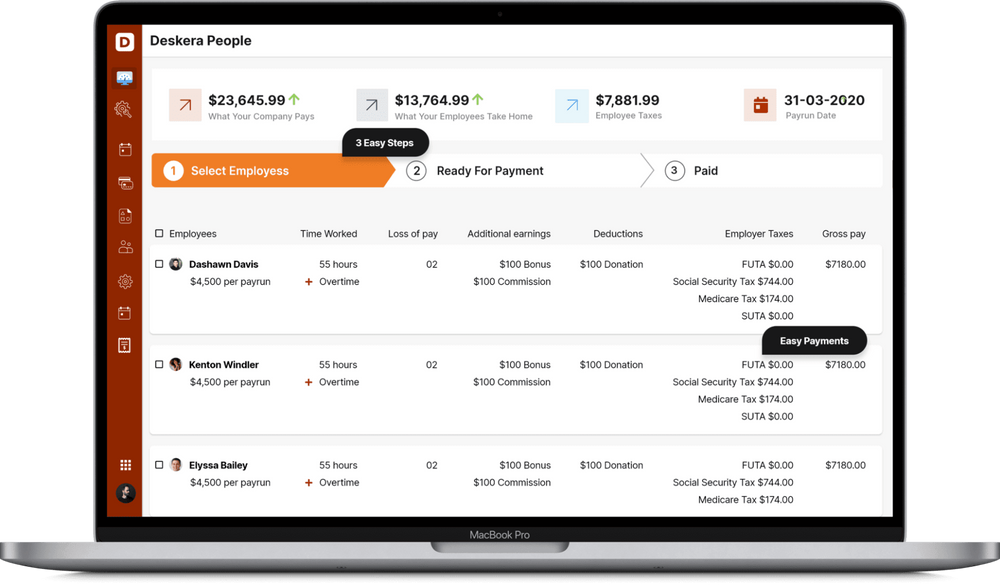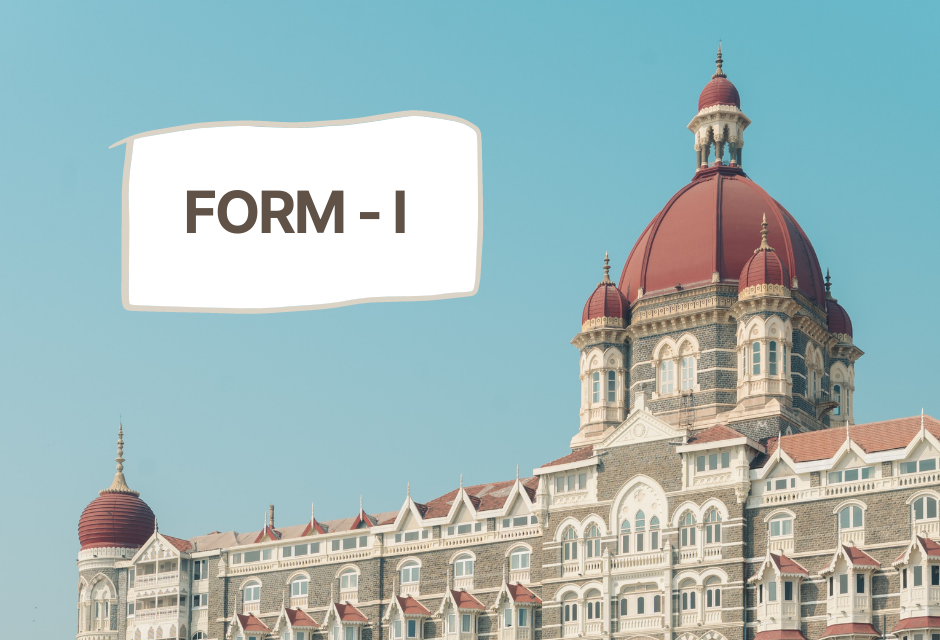Do you know that there is an Act in India that regulates, monitors, supervises and controls the training of Apprentices?
It is called the Apprentices Act, 1961.
The Apprentices Act, 1961 is applicable in the entire country and is mainly applied in every area or industry as specified by the Central Government by notification in the Official Gazette. The provisions of this Act are applicable from the date mentioned in the notification.
Mr. Ram Kumar was heading a team of apprentices and had no clue about the central form 2 report half year ending.
He consulted the concerned authority who told him that by the end of every half year, every establishment needs to submit the central form 2 report half year ending to the Regional Director or the State Apprenticeship Adviser. This half-yearly report is based on details related to trade apprentices receiving training.
Here, we will learn more about the central form 2 report half year ending.
Table of Contents
- Sample of the central form 2 report half year ending
- Components of the central form 2 report half year ending
- What is the Apprentices Act, 1961 all about, and what kind of information should be published in the central form 2 report half year ending?
- Who can be an Apprentice?
- Training location reservation
- Registration of an Apprentice contract
- Period of Apprenticeship
- Regulation and Monitoring of optional trade
- Number of Apprentices assigned to designated and optional trade
- Inspection of the structure
- Indemnity for termination of apprenticeship
- Qualifications of persons who will be responsible for training an apprentice
- Occupational models and qualifications of teachers for Apprentices and basic training
- Retention of work records by Apprentices
- Salary payment for Apprentices
- Working hours
- Leave granted to the Apprentice
- Other Compliance Forms under the Apprentices Act, 1961
- Conclusion
- Key Takeaways
Sample of the central form 2 report half year ending






Components of the central form 2 report half year ending
- Name & address of the establishment Report for the half year ending
- Name of the Manager/Director
- Name & Designation of the Incharge Officer of Training
- Name of Industry
- Standard Industrial Classification Code No.
- (Minor) Telex & Telephone No. Telegraphic Address Name of product
- Total number of workers
- Designated Trade
- Number of workers other than unskilled workers
- Number of apprentices to be engaged
- No. of apprentice under training
- Fresher under BSIC training
- Fresher under shop training
- Ex - ITI
- Total
- Apprentices joined during the half year
- *Apprentices completed training during the half year
- *Apprentices whose contracts terminated during the half year
- Number of apprentices under training
- Arrangement of Related Instructions on
(i) Day Release Basis
(ii) Block Release Basis
(iii) Any other Basis
- Total number of Apprentices
- Scheduled Castes Apprentices
- Scheduled Tribes Apprentices
- Physically Handicapped Apprentices
- Women Apprentices
- Apprentices under column 5 who are undergoing Basic
- Apprentices under column 8 who are undergoing Training at _
- Related Instructions at own establishments (Name of the Basic Training Centre) in trades at Sl. Nos
- Date
- Signature of Employer
What is the Apprentices Act, 1961 all about, and what kind of information should be published in the central form 2 report half year ending?
The central form 2 report half year ending is all about giving details of Apprentices in any area or industry. Here are some details of the rules that need to be followed as specified under the Apprentices Act, 1961
Who can be an Apprentice?
- Level of education – Any individual who meets the minimum educational qualifications listed in Attachment-1, is eligible to participate as an Apprentice
- Physical Fitness Level - An individual is eligible as an Apprentice if he meets the minimum physical fitness criteria specified in Annex II
If both the criteria are met, the information will be noted in the central form 2 report half year ending
Training location reservation
For each state specified in the training location column (2) listed in Annex IIA, there needs to be a reservation for Apprentices who belong to the Scheduled Castes and Scheduled Tribes in every designated trade.
Their total number will then be mentioned in columns 3 and 4 of the schedule.
Registration of an Apprentice contract
- The central government can establish contracts for all Apprentices
- The contract form prepared by the central government, which is adapted to the circumstances of each case, is used for each purpose described therein
- Once bound in contract, the information of Apprentices will be recorded in the central form 2 report half year ending
- The obligation of the employer and the apprenticeship system will be mentioned in Schedule-V
- The rules regarding graduates, technicians, and technical Apprentices (vocational) apprentices will be listed in Schedule VI
- Once the registration of Apprentices is complete, their information will be recorded and submitted to the higher authorities using the central form 2 report half year ending
Period of Apprenticeship
Schedule I will hold information about Apprentices referred to in Article 6, paragraphs (a), (aa) and (b) of the law prescribed
The Apprentice period in the case of trade Apprenticeship as defined in article 6, paragraph (aa) of the Law, will be listed in Schedule I-B
This should be specifically mentioned in the central form 2 report half year ending.
Regulation and Monitoring of optional trade
No one may work as an apprentice in a selective profession or optional trade if the following conditions are true:
- In the case of selective occupations associated with hazardous industries, the Apprentice is less than 18 years of age
- The apprentice is less than 14 years of age
- The apprentice does not fit the physical fitness regime
Number of Apprentices assigned to designated and optional trade
Employers with 6 or more employees can only hire apprentices. They cannot be hired in establishments where the number of employees does not exceed 40.
Work capacity is calculated based on the average capacity of the previous year. This is a crucial factor and will be accordingly registered in the central form 2 report half year ending.
Inspection of the structure
An Assistant Apprenticeship Adviser will be appointed to inspect the facility, which can be done with the approval of the Central or the State Apprenticeship Adviser.
Indemnity for termination of apprenticeship
If the apprenticeship contract is terminated because the employer does not comply with the terms and conditions, the employer is obliged to pay the apprenticeship equal to the last three months salary.
Qualifications of persons who will be responsible for training an apprentice
The apprentice trainer must have the qualifications specified in Schedule IV of these rules by the employer. The persons so designated must be of an appropriate standard about the number of places in the vocational training and the size of the facility.
Occupational models and qualifications of teachers for Apprentices and basic training
The employment models and qualifications of teachers for providing basic education and training to apprentices are as specified in Table IV (A).
Retention of work records by Apprentices
All graduates, technicians, or technical Apprentices (experts) keep daily logs of work related to vocational training in the form of workshop or laboratory notebooks.
Details will be shared in central form 2 report half year ending.
Salary payment for Apprentices
The minimum monthly salary for Apprentices is as follows:
- 1st year of training – 70% of the minimum wage
- 2nd year of training – 80% of minimum wage
- 3rd and 4th year - 90% of minimum wage
The minimum wage for semi-skilled apprentices is notified by the state or trade union territory.
Breakdown of minimum wages for semi-skilled workers will be as reported by state or trade union territory of reference.
Working hours
The weekly working time of Apprentices is as follows:
- Total weekly hours 42-48 hours (including time devoted to relevant education)
- Business apprentices with basic training usually spend 42 hours per week
- During the second year of training, Apprentices must work 42 to 45 hours per week, including time devoted to relevant education. Details of the same will be recorded in the central form 2 report half year ending
Leave granted to the Apprentice
The vocational training contract signed between the Apprentice and the employer according to Format 1 set out in Annex III must be registered by the employer on the website of the portal.
- All employers must register the presence of Apprentices in vocational training at their establishment and measures against irregular and unauthorized absences are registered at the end of the month
- All employers are required to keep quarterly records of work and training performed by graduates, technicians, and technical Apprentices (experts) working at their facility. Half yearly reports will also be shared through the central form 2 report half year ending
Other Compliance Forms under the Apprentices Act, 1961
Form 3 - Notice of Completion - Each employer must provide information on apprentices who meet the minimum eligibility requirements to take the next trade exam in March or September and the details presented in the prescribed form are regional. It must be presented to the Regional Director or the State Apprenticeship Adviser.
Form 4 - Certificate of Eligibility to appear in All India Trade Test along with the assessment of the Apprentices. Employer prepares returns in specified format within 7 days from the date the trade Apprentice joins the organization. The employer can submit a declaration to the Regional Director or State Apprenticeship Adviser and the other copy to the Principal or Head of the Institute who has to transfer the basic training or related instructions.
Form 5 - Index cards – All graduates, technicians, or technical (professional) apprentices visiting an institution must have an index card in the prescribed format with complete biometric data. All Apprentices who would receive the index card will have their names on the central form 2 report half year ending. The employer must prepare the card within 10 days of the contract date, give one to the Apprentice, and give a card to each of the following entities.
- The Central Apprenticeship Adviser
- The Director, Regional Board of Apprenticeship Training concerned
- In the case of the Sandwich course student, the technical Institution concerned
Form 6 – Progress Record of Apprentices - Each employer, should prepare a record of each apprentice in a particular format, with the work done by graduate Apprentices, technicians, and technicians (experts) involved in their company for each quarter.
At the end of each quarter, the employer must submit a report to the Director, the Regional Board of Apprenticeship Training concerned. Besides the quarterly report, the central form 2 report half year ending should be submitted every 6 months to the authorities, elaborately detailed about the progress in the Apprentice training.
Conclusion
The central form 2 report half year ending, comprises of reporting of Apprentices in a given establishment. This report needs to be prepared half-yearly comprising of all the vital details of apprentices as discussed above.
The employer must prepare the central form 2 report half year ending and submit it twice a year to the Regional Director or the State Apprenticeship Adviser. Besides the quarterly reports that are shared by the employers, the central form 2 report half year ending is a crucial report that elaborately explains the kind of training and learning that the apprentice has achieved and gained.
How Can Deskera Assist You?
Deskera People helps digitize and automate HR processes like hiring, payroll,leave, attendance, expenses, and more. Simplify payroll management and generate payslips in minutes for your employees.

Key Takeaways
- An Apprentice is a person who is undergoing training within a contract from an employer of an establishment as specified under the Apprentices Act
- Online Apprenticeship Registration is required for Apprentices of both Designated Trades and Optional Trades
- All new Apprentices must undergo basic training and whoever does so, will have their names registered under the central form 2 report half year ending
- Candidates who do not have basic training or professional/educational qualifications who apply for professional training on the portal must receive basic training. They will be enrolled under the central form 2 report half year ending, wherein the half-yearly report will be submitted to the Regional Director or the State Apprenticeship Adviser
- Vocational training is industrial or organizational training based on a vocational training agreement consisting of: -a) basic training components and b) workplace training (OJT) / workplace training
- All organizations with a workforce of 30 or more (permanent and contract employees) are required to provide annual professional training programs to between 2.5% and 15% of the workforce (including direct contract employees). A central form 2 report half year ending will be prepared on these apprentices and submitted to the authorities as specified
- Establishments with a workforce of 3 or less cannot accept Apprentices
- All sectors come under the Apprentices Act, including manufacturing and services
Related Articles











